Social Sciences
September 1, 2007

Woes of Kilimanjaro
UW researchers say global warming has nothing to do with the decline of Kilimanjaro’s ice, and using the mountain in northern Tanzania as a “poster child” for climate change is simply inaccurate.
June 1, 2007
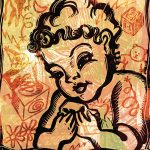
Toddlers take a cue
For the first time, UW researchers have confirmed that toddlers engage in “emotional eavesdropping”—changing their own behavior in response to an emotional exchange that does not involve them.

Ocean blues
Since the Industrial Revolution, Earth’s oceans have swallowed nearly half of all fossil-fuel carbon emissions. Damage could be reaching the tipping point.
March 1, 2007

Immigrant mental health
Immigrants from Asia have lower rates of psychiatric disorders than American-born Asians and other native-born Americans, according to the first national epidemiological survey of Asian Americans in the United States.
September 1, 2006

Fighting the blues
Taking a page from Alcoholics Anonymous and similar groups, UW researchers successfully tested a brief, low-cost “intervention” to deal with depression.
March 1, 2006
Mating dance
Scientists have been able to link skillful dancing to established measures of human desirability and attractiveness.
June 1, 2004

'Success gap' fades
Throw out the old stereotype of the career woman with advanced degrees leading the life of a single. A new UW study finds that higher education is not the hindrance to marriage and motherhood it once was.
March 1, 2004
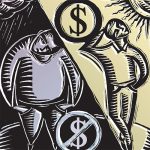
Income-weight link
Healthy foods that aid in weight loss and provide a feeling of fullness cost more than energy-dense foods such as French fries, soft drinks, candy and cookies. The result: poor people are more likely to be overweight.
September 1, 2003
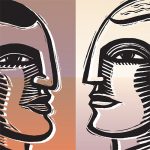
Shooters' bias
A UW experiment using primarily white and Asian college students found that people were more likely to shoot blacks than whites, even when the men were holding a harmless object such as a flashlight rather than a gun.
December 1, 2000

Predicting divorce
Researchers studying the state of American marriages now can predict not only which couples will divorce but also when they will divorce.
March 1, 2000
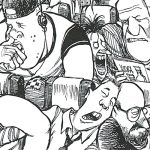
High anxiety
A UW professor and doctoral student conducted a pioneering study of people who fly frequently for business.
December 1, 1998
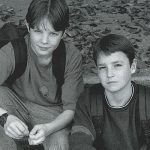
Learning curves
UW research into learning disabilities—including new teaching tactics, genetic testing and brain imaging—may finally break some children's roadblocks to success.

Prejudice abounds
Prejudice affects 90 to 95 percent of the population, says a University of Washington psychologist who developed a new tool to measure the unconscious roots of prejudice.
March 1, 1998

Safer on streets?
Recent UW research shows life on the street may be an improvement over what many children face at home.
December 1, 1997
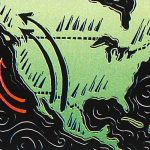
Land on the move
What today are rainy British Columbia and chilly southern Alaska were once the sunny climes of Baja California, according to UW Paleontologist Peter Ward.
September 1, 1997
Dollars shouldn’t define divorced dads, professor says
Social Work Professor Pauline Erera says that it's time to understand dads beyond the issue of dollars.
July 1, 1997
‘Imagination inflation’ makes childhood events seem real, study finds
The power of human imagination may be stronger than previously suspected, blurring the line between memory and imagination.
March 1, 1997
Subliminal messages can affect cognition, researchers show
UW psychologists say there is some evidence that subliminal messages can affect human cognition.
Crime rates are down; UW sociologists try to explain why
UW sociology professors say there are no easy answers to the mystery behind the falling crime rate.
June 1, 1996
The weaker sex? If there’s a disaster, it’s men
Women are better equipped than men to survive a long-term natural disaster, says a UW anthropology professor.